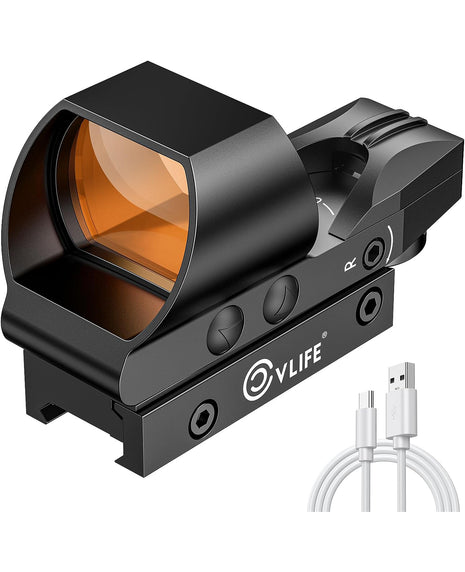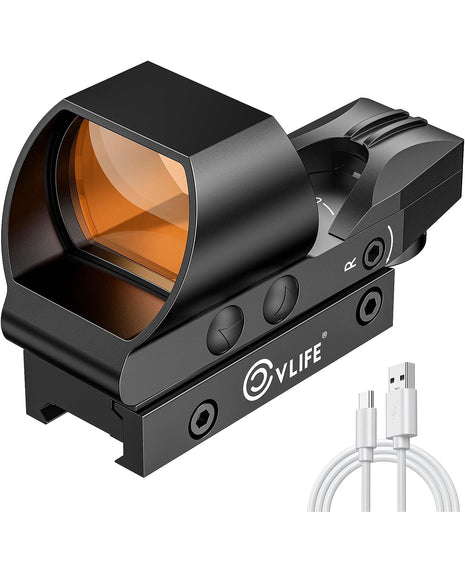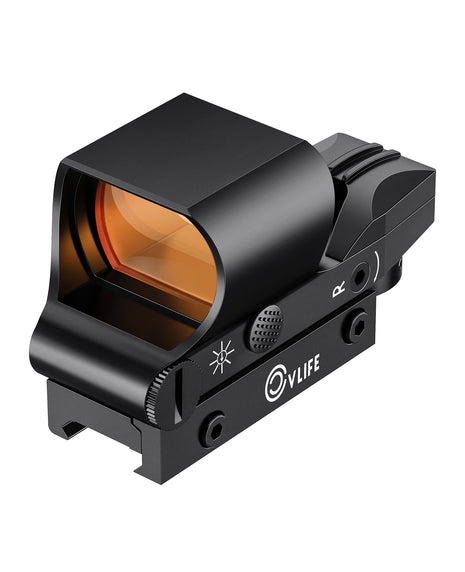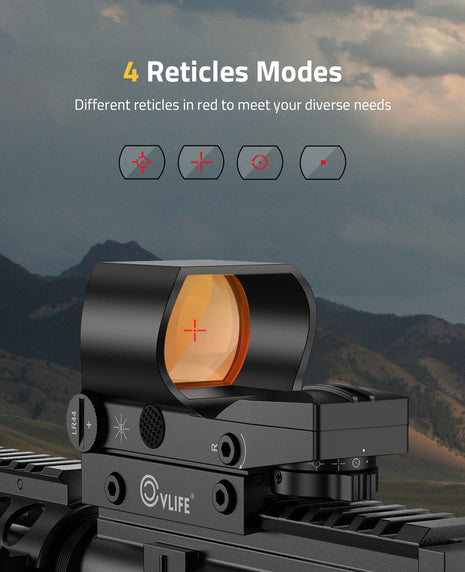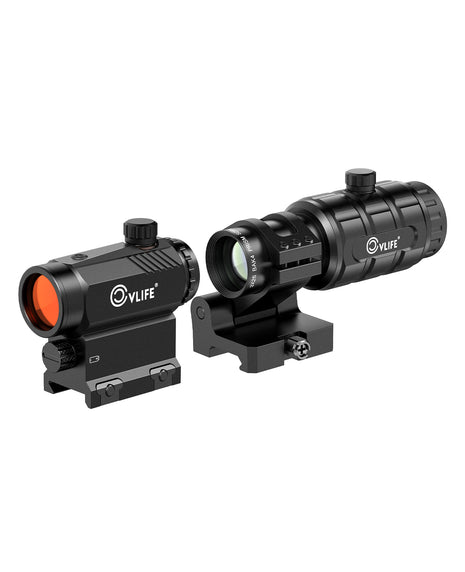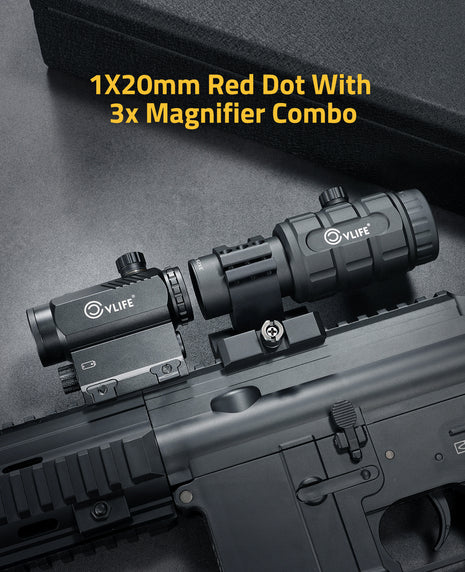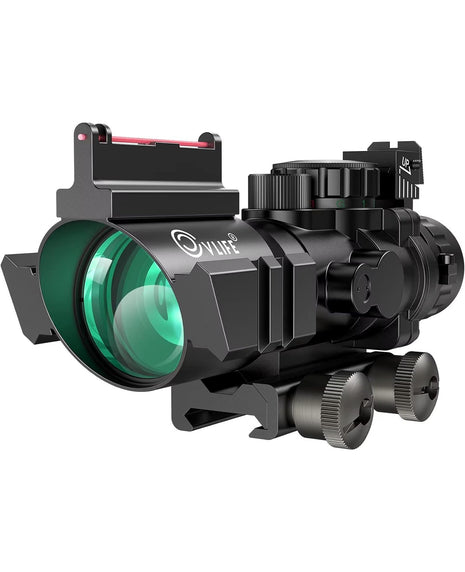3 CONSEJOS PARA MEJORAR LA PRECISIÓN DE DISPARO
- 3 min tiempo de lectura

Cuando se trata de disparar, la precisión es fundamental.
Después de todo, mejorar tu precisión te ahorrará tiempo, munición e incluso la vida. La pregunta es: ¿Cómo mejorar la precisión al disparar? Fácil. Solo ajusta ligeramente algunos pequeños detalles en tu forma de disparar. Por ejemplo, al principio me costaba dar en el blanco a 500 yardas con mi rifle. Pero con algunos ajustes menores, como equipar mi rifle con el mira telescópica y el punto rojo y siguiendo estos consejos que estoy a punto de compartir, pude acertar en los blancos como nunca antes. Dicho esto, aquí tienes tres consejos que te ayudarán a dejar de disparar como un soldado de asalto.

- Posturas y agarre
No es ningún secreto que cómo posicionas tu cuerpo y manos tendrá un gran impacto en la precisión. Si te equivocas, afectará tu imagen de mira y comodidad — dos factores clave para la precisión. Empecemos con las posturas: tu postura dictará la estabilidad, el control y cómo se distribuye la fuerza del arma en tu cuerpo al disparar. ¿La buena noticia? Hay varias posturas entre las que puedes elegir — las más populares son Weaver, Chapman e Isósceles. Para determinar cuál postura es ideal para ti, simplemente prueba cada una con diferentes armas y ve cuál te resulta más natural. Disparar con precisión es mucho más fácil cuando estás en una posición cómoda. Con la postura establecida, es hora de hablar del agarre. La forma en que sostienes tu arma afectará dos cosas: el retroceso y el control. Aquí te explico cómo sujetar correctamente tu arma: primero, debes agarrar el arma firmemente con tu mano dominante. Luego, envuelve tu mano no dominante alrededor de la mano dominante para crear un agarre firme en el arma. Esto asegurará menos movimiento del arma y, por lo tanto, más control. Al disparar una pistola, en particular, debes alinear tu antebrazo con el arma. Esto ayudará a controlar el retroceso, ya que la fuerza de la pistola se distribuirá directamente a través de tu antebrazo, en lugar de tu muñeca.
- Presiona, no tires
Un error común que cometen muchos tiradores novatos es la técnica incorrecta del gatillo. Muchas personas tiran del gatillo con demasiada fuerza, en lugar de presionarlo con cuidado. Esta fuerza repentina sobre el gatillo hará que el arma se sacuda. No es bueno. En cambio, debes presionar el gatillo lentamente hasta que se dispare el tiro. Manteniendo el arma en una posición estable, será más fácil continuar con disparos adicionales después con mucha más precisión. De nuevo, mantener el control del arma aquí es clave.

- Disparo en seco
"La práctica hace al maestro." ¿Cuántas veces has escuchado esa frase? Probablemente muchas. Después de todo, si quieres ser bueno en algo — incluyendo disparar con precisión — necesitas practicar tanto como sea posible. Y una de las mejores formas de practicar el disparo es el disparo en seco (o el proceso de disparar tu arma sin munición real dentro). Aquí está la razón por la que deberías practicar el disparo en seco:
Sin gastos adicionales en munición
Sin riesgos de seguridad
Mejora el control del gatillo
Ayuda a desarrollar la memoria muscular necesaria para disparar con precisión de forma constante
Un poco de práctica cada día es todo lo que se necesita. Perfeccionar esas habilidades es importante para refinar tu técnica con el tiempo. Si ya eres un tirador preciso, la práctica de disparo en seco te ayudará a mantenerte en la cima de tu rendimiento. Aquí hay algunas reglas importantes para recordar durante el disparo en seco:
El arma debe estar descargada
Practica el disparo en seco en un área dedicada que tenga un respaldo seguro en la dirección hacia donde apunta el arma
No se permite munición real en el área designada para disparo en seco
Usa protección para los ojos
Mantén el dedo fuera del gatillo hasta que estés listo para disparar
Usa cartuchos de práctica. Esto protegerá el percutor o aguja de tu arma de daños innecesarios
Etiquetas
Featured collection
Blog posts
-

, por C V 🔍 Maximize Precision: Features to Look for in an LPVO Scope
-

, por C V What Is Motion Awake on a Red Dot Sight – And Why It Matters
-

, por C V When a Red Dot Isn’t Enough: The Case for a 3X Magnifier Combo
-

, por C V Reseña del Visor Nocturno Inteligente BearMight: ¿Vale la Pena?

